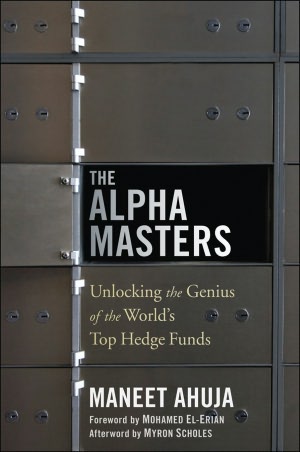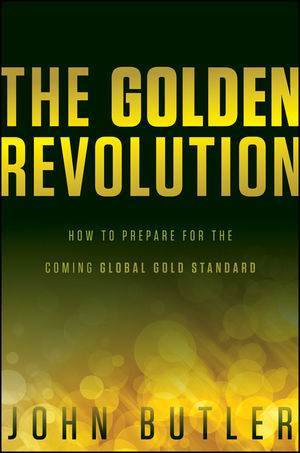
This book is written by one of the foremost stock investors in emerging markets, Mark Mobius.? This is a short book that has little to no math in it, and few graphs.? It can be read in 2-3 hours.
The edge that this book will give you is understanding the limitations of emerging market investing.? What are those limitations?
1) Emerging markets are volatile, and dependent on the overall health of the developed economies.? Companies in emerging markets often export to the developed nations.? Emerging market governments often gear their monetary policy to aid their exporters, which forces them to absorb the loose or tight monetary policy of the developed nations.
2) Emerging markets often lack legal safeguards on property rights that developed markets take for granted.? Remember that there is a difference between “rule of law” (governments are subject to a constitution), and “rule by law.” (governments make laws to enforce their will on everyone else)
3) Accounting methods may be less well-developed.? Typically this leads to valuation discounts, until the accounting is deemed as trustworthy as in the developed nations.
4) Corporate governance can be weak, with insiders getting significantly more benefits than shareholders.? Getting to know whether the board & management are honest, and acting for the good of all is critical.
5) Frontier emerging markets offer a lot of potential for profit, but they have all of the above problems, and much larger.? When there are few foreign investors in a market, safeguards are few.? Ask who registers the shares, and you may find that no one does, or the company does, so how can you prove you are the owner.
6) As a result, one must insist on a large margin of safety when investing in emerging markets.? That involves a good balance sheet, cheap valuation, and growth potential.
7) Emerging market investing is a hybrid — look at the country, the industry, and the company itself.? To buy, you have to have some confidence in most/all of them.
8) Opportunities are often best after a large pullback in the nation’s stock index.? Buy the strongest most liquid names after a crisis.? They will come back.
9) Privatizations are often good opportunities to buy; the company will do much better once there is a profit motive.
10) Banks are mirrors of the local economy; they lead the market down and up.? Anything affecting the economy in specific affects the banks, because usually bond markets are not active.
11) To be long emerging market stocks, you have to be an optimist.? It is similar to being a high-yield bond manager.? Investment grade bond managers are paid to be pessimists; there is little to no upside.? High yield managers have some upside that they play for; they are always more optimistic.? So it is for emerging market stock managers — there is a lot of upside to play for , so they have to be optimists.
12) As such, investing in emerging markets takes a lot of work to do it well.? And if you read the book, you might think by the end that you don’t have enough information to do it on your own, and I think you would be right.
Think for a moment about all of the scandals over Chinese reverse mergers with US shell companies — and these are listed in the US!? What hope does a US investor have of investing in emerging markets at a distance?? Accounting differences, disclosure differences, legal rights can be different… it could be a full time job.
This is why you need a manager of an open-end or closed-end mutual fund, or at least an exchange-traded fund [ETF] to invest in.? Mark Mobius explains how difficult it is to do it yourself, without saying that bluntly to you as I am doing.? Personally, I would encourage investing in a broad fund that can go anywhere, and not a country-specific fund, unless you have a very strong view of why a particular market will do well.
I recommend this book so that you can learn, but I think at the end, you won’t do much with it, except buy a mutual fund or an ETF.
Quibbles
This is a “little book.”? As such, you only get a taste.? If you want a full meal from Mr. Mobius, you might get this book: Passport to Profits: Why the Next Investment Windfalls Will be Found Abroad and How to Grab Your Share.
Who would benefit from this book:People who want an introduction to emerging market investing, including the market cycles would benefit from this book.? If you want to, you can buy the book here: The Little Book of Emerging Markets: How To Make Money in the Worlds Fastest Growing Markets (Little Books. Big Profits).
Full disclosure: This book was sent to me without my asking for it.
If you enter Amazon through my site, and you buy anything, I get a small commission.? This is my main source of blog revenue.? I prefer this to a ?tip jar? because I want you to get something you want, rather than merely giving me a tip.? Book reviews take time, particularly with the reading, which most book reviewers don?t do in full, and I typically do. (When I don?t, I mention that I scanned the book.? Also, I never use the data that the PR flacks send out.)
Most people buying at Amazon do not enter via a referring website.? Thus Amazon builds an extra 1-3% into the prices to all buyers to compensate for the commissions given to the minority that come through referring sites.? Whether you buy at Amazon directly or enter via my site, your prices don?t change.










